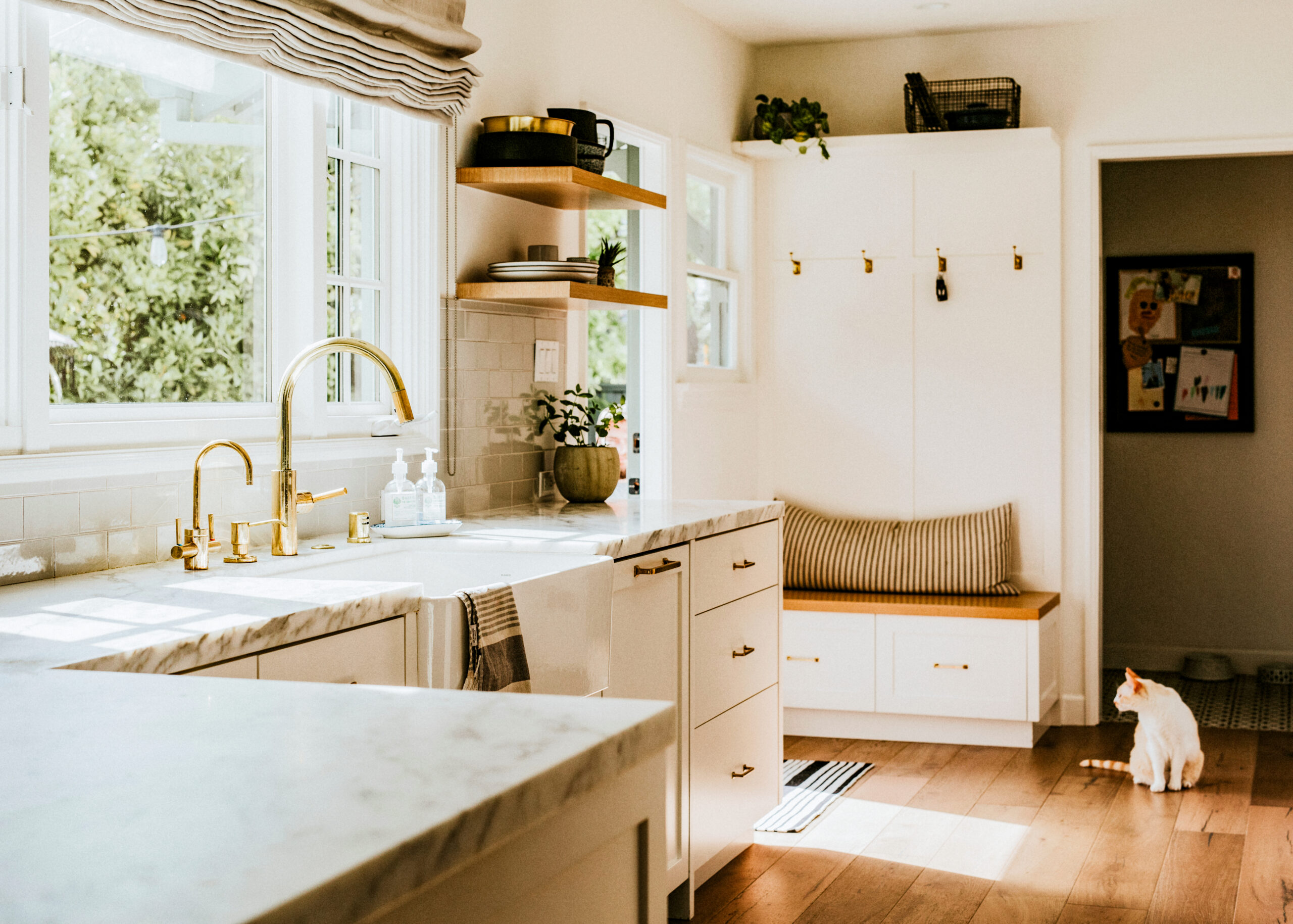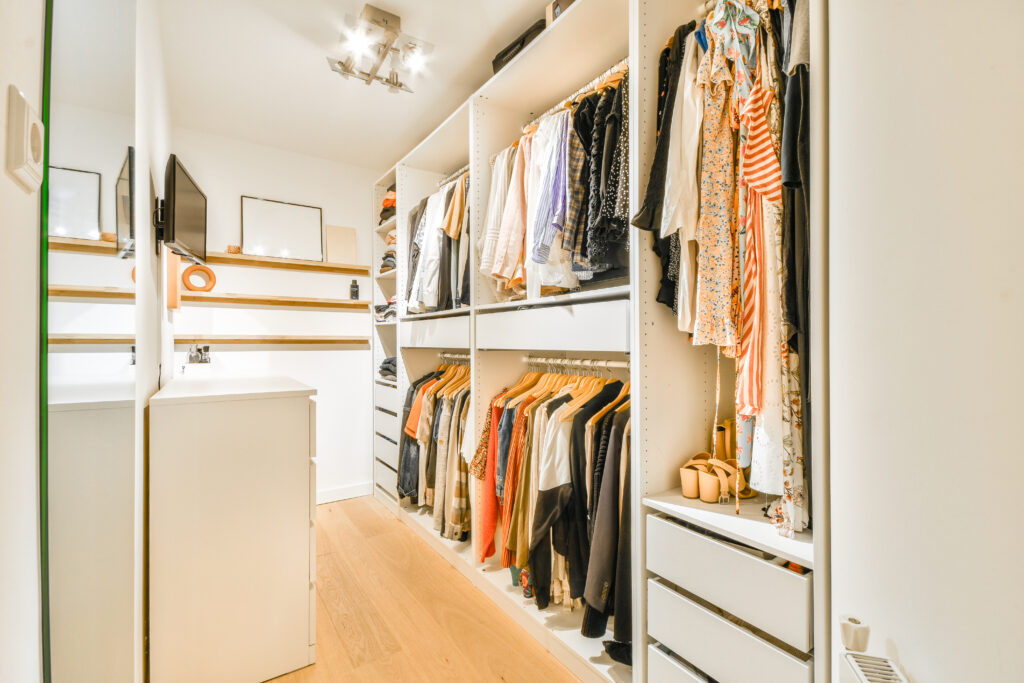- calendar_month August 3, 2023
One of the best things about owning a home is the ability to change things up, whether it’s knocking down a kitchen wall to open up space or filling your backyard with your favorite fruit trees.
That freedom also offers unlimited opportunities to make mistakes, at least when it comes to spending money on home improvements that don’t add the value you’d hoped for.
Of course not all home improvements are made with an eye toward adding value. Your home is your castle to enjoy as you please. If you want to paint every wall purple in a nostalgic homage to Barney or put a miniature golf course in your backyard — something that could actually add value — that’s your business.
If, however, you’re looking at your home primarily as an investment or are planning to sell soon, it might be a good idea to consider whether the improvement projects you’re considering will pencil out when you’re ready to move on.
Don’t expect a dollar-for-dollar return
Modest home improvements that tend to make the home cleaner, safer and more functional are good bets for sellers, according to Zillow® research. However, big-ticket items, such as pools, major kitchen and bath remodels and extensive landscaping undertaken for the sole reason of adding value might not bring the return you hoped for.
According to the Remodeling 2023 Cost vs. Value Report, which estimated the return on investment on some common home improvement projects, only four improvements boosted value on resale: electric heating and air conditioning conversion, garage door replacement, manufactured stone veneer and replacing a steel entry door.*
What’s more, Zillow research into home features that help homes sell for more — or less — than expected shows that buyer preferences change over time. So a trendy home update made today for the sole purpose of adding value can seem dated — or even detract from the value — in five or 10 years.
With that in mind, here are five home improvements that might not pay off when you sell your home.
1. Turning your kitchen into a white wonderland
 White kitchens have come and gone in popularity over the decades. After a recent revival, the trend appears to be sunsetting once again.
White kitchens have come and gone in popularity over the decades. After a recent revival, the trend appears to be sunsetting once again.
According to Zillow research into the paint color preferences of home buyers, a white kitchen can hurt a home’s sales price by more than $600. Instead, today’s buyers prefer dark gray tones such as charcoal and graphite.
If you don’t care about the trends at the time of resale or if you plan to repaint prior to selling, you might consider how you want to feel in any given room and paint accordingly. Or you can just go wild.
2. Adding a walk-in closet
 The pandemic seems to have driven a stake through this once-prestigious feature. At a time when people who could work at home did so, the idea of devoting gobs of space to the storage of shoes and clothing at the expense of a home office might have seemed a waste of valuable real estate.
The pandemic seems to have driven a stake through this once-prestigious feature. At a time when people who could work at home did so, the idea of devoting gobs of space to the storage of shoes and clothing at the expense of a home office might have seemed a waste of valuable real estate.
Zillow’s research into home listings shows that walk-in closets can hurt a home’s value by 0.7%, a relatively small amount but an indication that it might not be worth the cost to add a space where you can see all your clothes.
3. Adding a deck
 The addition of a deck can open up all sorts of opportunities for entertaining or it can serve as something of an outdoor room. But decks don’t pay for themselves at the time of sale, according to Remodeling’s 2023 Cost vs. Value Report.
The addition of a deck can open up all sorts of opportunities for entertaining or it can serve as something of an outdoor room. But decks don’t pay for themselves at the time of sale, according to Remodeling’s 2023 Cost vs. Value Report.
A wood deck costs about $17,051, but this home improvement does not add value overall — it only adds $8,553 at the time of sale, a return of about half what you’ll spend, the report says.
The cost is even higher for composite materials, and the return even lower: Just under 40%.
4. Turning your garage into a bedroom
 Majorities of buyers surveyed by Zillow for its annual Consumer Housing Trends Report have consistently said they want a place to park their car, so removing this amenity by converting it into a bedroom could eliminate some potential buyers, and hence affect the price you might get when you sell.
Majorities of buyers surveyed by Zillow for its annual Consumer Housing Trends Report have consistently said they want a place to park their car, so removing this amenity by converting it into a bedroom could eliminate some potential buyers, and hence affect the price you might get when you sell.
An exception could be converting the space into an Accessory Dwelling Unit, also known as an ADU, casita or mother-in-law unit. Zillow research shows that growing numbers of buyers want the ability to rent out all or some of their home. Additional Zillow research suggests that private spaces are growing in demand, and sellers are mentioning “privacy” or “private spaces” in their listings more frequently than in the past. If your home is short on private spaces, it could make sense to convert the garage.
If you’re trying to gauge whether a garage is a must-have for most buyers in your local market, consult a local real estate agent.
As for that extra usable space that was a must-have during the peak of the COVID pandemic, when people who could work from home did so, it’s possible the return to office work will see a slowdown in listings that mention private space.
5. Installing an in-ground swimming pool

This one is a mixed bag. Whether the pool becomes an asset or a liability depends on a number of things, including the pool’s size, age, condition, location on the property and housing market. The main drawback is the cost, and the fact that other projects would be a greater return for the same money.
An in-ground pool can set you back about $23,370, according to the home services website Thumbtack, which calculated the national average cost of installing a pool over the last four years. Add in fencing and landscaping, and you’re looking at an investment of nearly $30,000, according to Thumbtack.
If you’re a pool person, that is money well-spent. And a recent Zillow analysis found that homes with saltwater pools sell for 1.5% more than comparable homes without one — and they sell two days faster.
But depending on the climate, prospective buyers might not want to spend the time and money and vigilance it takes to keep a pool clean and safe. This could translate into fewer views and offers when you go to sell.
Home maintenance also has a big impact on home values
A well-maintained home can sell for about 10% more than a similar home in average condition, according to Thumbtack research.
So while improvements can add value to your home, regular maintenance will keep your home in better condition so that there are fewer improvements to tackle when you do decide to sell. Some things to keep an eye on: cleaning gutters, resealing grout in the kitchen and bath and having heating and air conditioning systems serviced regularly.
To stay on track with home maintenance, download Zillow’s Home Maintenance Checklist.
*© 2023 Zonda Media, a Delaware Corporation. Complete data from the Remodeling 2023 Cost vs. Value Report can be downloaded free at www.costvsvalue.com.
